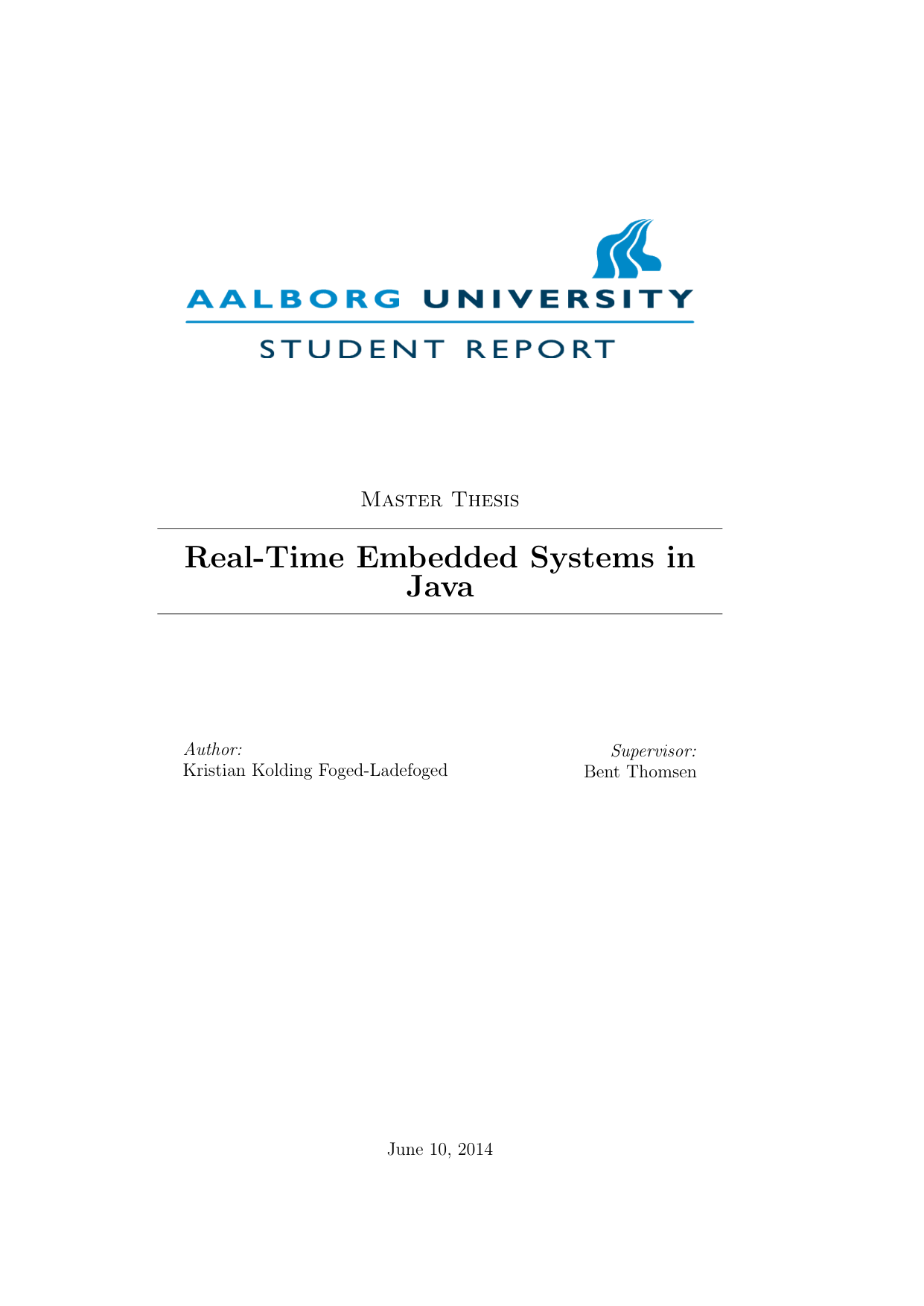
Real-Time Embedded Systems in Java
Term
4. term
Education
Publication year
2014
Submitted on
2014-06-10
Pages
47
Abstract
This project investigates the usefulness of object-oriented paradigm in realtime embedded systems. The investigation is twofold, with the benefits of the object-oriented paradigm explored through a literature review, and 28 benchmarks developed in Java to investigate whether or not the objectoriented paradigm has any influence on execution times. The literature review is conducted based on a search strategy, which uses approaches suggested by Webster and Watson[32]. The benchmarks consists of 14 benchmarks, which is developed in two versions using object-oriented design and little to none object-oriented design. The benchmarks is derived from the well-known Malardalen benchmark suite[9]. The project concludes that the object-oriented paradigm promotes maintainability, reusability and increases productivity. Execution times are however significantly increased.
This project investigates the usefulness of object-oriented paradigm in realtime embedded systems. The investigation is twofold, with the benefits of the object-oriented paradigm explored through a literature review, and 28 benchmarks developed in Java to investigate whether or not the objectoriented paradigm has any influence on execution times. The literature review is conducted based on a search strategy, which uses approaches suggested by Webster and Watson[32]. The benchmarks consists of 14 benchmarks, which is developed in two versions using object-oriented design and little to none object-oriented design. The benchmarks is derived from the well-known Malardalen benchmark suite[9]. The project concludes that the object-oriented paradigm promotes maintainability, reusability and increases productivity. Execution times are however significantly increased.
Keywords
Documents
